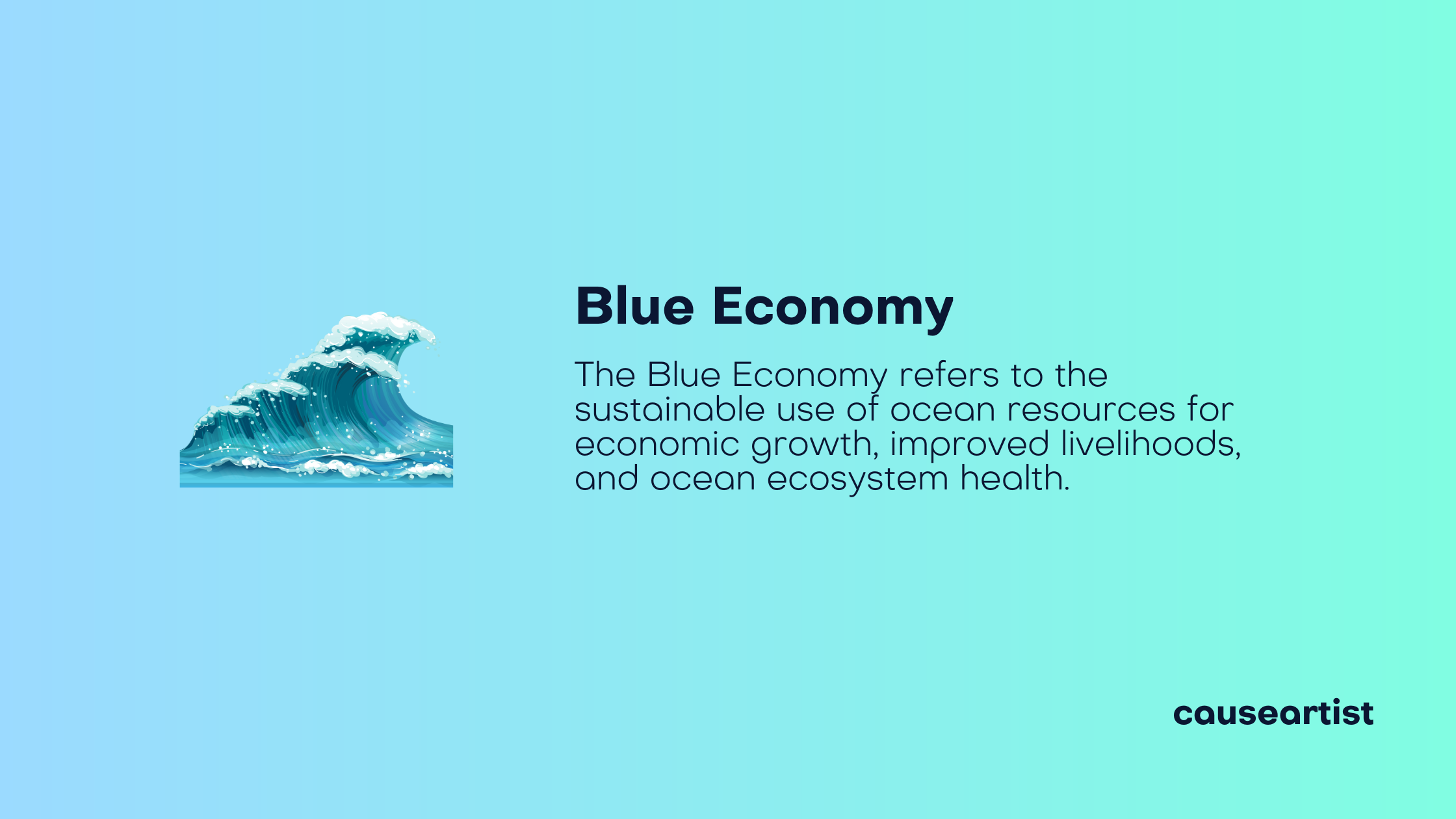The Blue Economy refers to the sustainable use of ocean resources for economic growth, improved livelihoods, and ocean ecosystem health. It recognizes the ocean as a source of value beyond extraction—including carbon sequestration, biodiversity, tourism, transportation, and renewable energy.
Originally defined by the World Bank, the Blue Economy includes both traditional and emerging marine sectors that prioritize sustainability and inclusivity.
“The blue economy is the sustainable use of ocean resources for economic growth, improved livelihoods, and jobs while preserving the health of the ocean ecosystem.” – World Bank

Key Sectors of the Blue Economy
Here are some of the major areas driving growth in the Blue Economy:
- 🐠 Sustainable Fisheries & Aquaculture
Focused on preventing overfishing and supporting responsible seafood production. - ⚡ Ocean Renewable Energy
Tidal, wave, and offshore wind energy that harness ocean forces without polluting. - 🛳️ Maritime Transport
Greening one of the most essential logistics channels on Earth through cleaner fuels and digital logistics. - 🧪 Marine Biotechnology
Using ocean-based organisms for pharmaceuticals, cosmetics, and bioplastics. - 🏖️ Eco-Tourism & Coastal Recreation
Developing sustainable travel experiences that respect coastal ecosystems and local cultures. - 🛠️ Blue Infrastructure & Habitat Restoration
Innovations in coral reef restoration, mangrove planting, and “blue carbon” offsets. - 🌊 Ocean Waste Management
Tackling plastic pollution and marine debris through recycling tech and circular economy models.
Why the Blue Economy Matters
- 🌐 Covers 70% of the planet
Oceans play a critical role in regulating the Earth’s climate and producing oxygen. - 💼 Supports over 3 billion people
Especially in coastal and island communities dependent on marine resources. - 💰 Estimated global value of $3–6 trillion annually
According to the OECD, the ocean economy is poised to double in size by 2030. - 🌱 Natural carbon sink
Oceans absorb ~25% of global CO₂ emissions each year, making them critical to climate resilience.
Startups and Innovations in the Blue Economy
Impact entrepreneurs and social enterprises are innovating across the spectrum of ocean tech and conservation.
Here are a few standout examples:
- 💧 Desolenator - Uses solar-powered desalination to produce clean drinking water from the sea without chemicals or grid energy.
- ♻️ The Ocean Cleanup – Nonprofit developing advanced technologies to remove plastic from oceans and rivers.
- 🌍 Searious Business – Focused on preventing plastic waste at its source by working with manufacturers and brands.
- 🪸 Coral Vita - A coral farming startup using land-based nurseries to restore dying reefs 50x faster and with more resilient species.
Check out more blue economy startups.
Global Organizations Supporting the Blue Economy
- Accelerator Lab in Barbados and the Eastern Caribbean – Supports innovation across 14 countries in marine-based livelihoods
- Friends of Ocean Action – A global coalition mobilizing leaders to fast-track solutions for a healthy ocean
- World Ocean Council – Brings together ocean industry leadership for sustainable business practices
Final Thoughts
The Blue Economy represents a powerful intersection of planet, people, and profit. As climate challenges intensify, investing in a regenerative ocean economy isn't just the ethical path—it's also a smart business opportunity.
At Causeartist, we’re inspired by the innovators and visionaries bringing this movement to life. Whether you're a social entrepreneur, impact investor, policymaker, or concerned citizen, now is the time to ride the wave of the Blue Economy.







